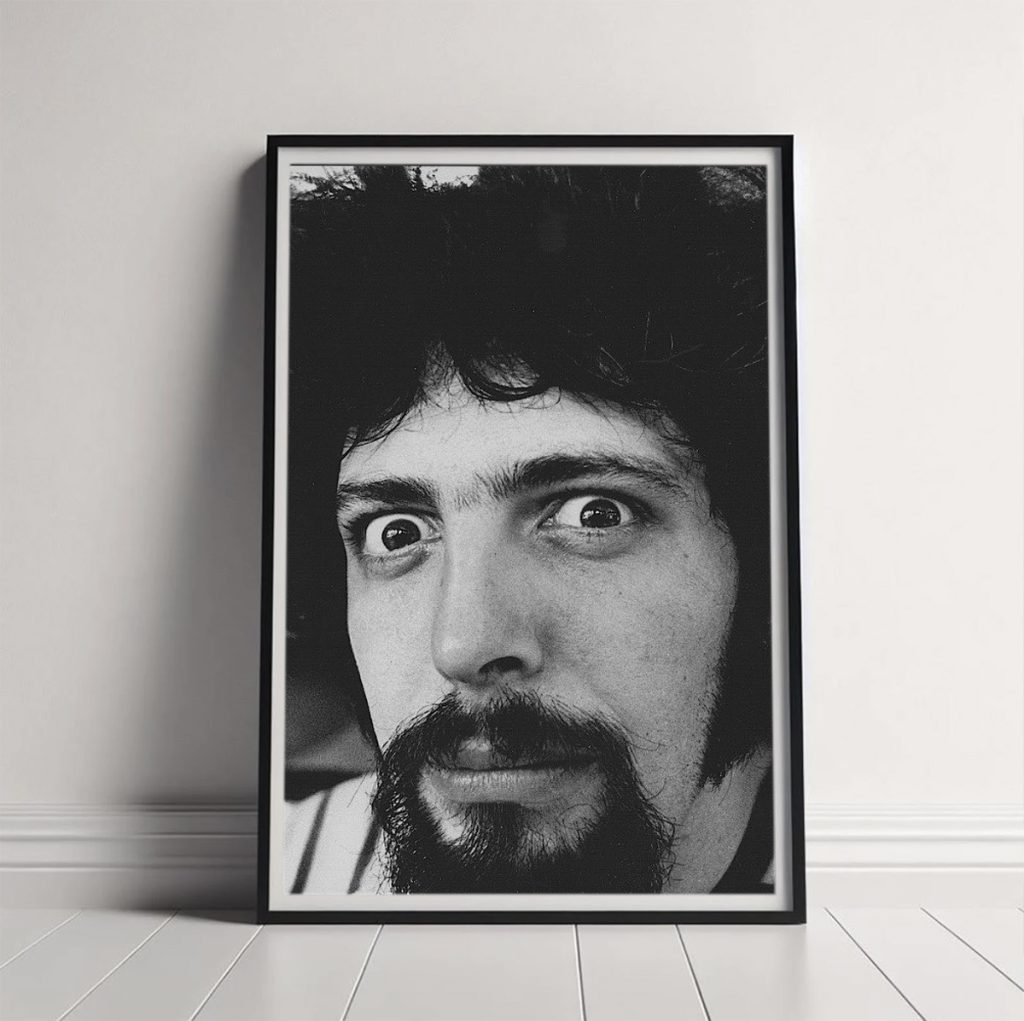
Spain Rodriguez
Author
Cartoonist, Artist
About Spain Rodriguez
Spain Rodriguez: Buffalo’s Born Rebel of Underground Comics
On March 2, 1940, Buffalo, NY gave the world one of its boldest and most unapologetic creative voices—Manuel “Spain” Rodriguez. Rising from the industrial grit of his East Side neighborhood, Spain became an icon of the underground comix scene, leaving an indelible mark on the world of comics and counterculture. With works like Trashman and his contributions to the infamous Zap Comix, Spain’s storytelling was as raw and uncompromising as the life he lived.
Early Life in Buffalo
Spain Rodriguez grew up in Buffalo’s working-class East Side during the 1940s and ‘50s. His early days were shaped by the blue-collar surroundings and a culture of rebellion, which he embodied as a member of the Road Vultures Motorcycle Club. The chaos of bar brawls, street fights, and the outlaw biker lifestyle would later serve as inspiration for his artwork. Spain’s upbringing was steeped in anarchy and individualism—a mindset he carried into his career as a cartoonist.
Buffalo’s vibrant music scene also left its imprint on him, as Spain spent hours listening to rock ‘n’ roll on the radio, particularly broadcasts by legendary DJ George “Hound Dog” Lorenz. These formative experiences ignited a passion for storytelling that spoke to the rough-and-tumble spirit of working-class life.
From Grit to Graphics
At 19, Spain made the leap from Buffalo to art school at the Silvermine School of Art in Connecticut. However, his tenure was short-lived as he clashed with professors who didn’t appreciate his representational style. Returning to Buffalo, he took on a janitorial job at Western Electric while nurturing his creative ambitions.
Spain’s artistic talent and rebellious ethos propelled him to the center of the counterculture movement. He relocated to New York City in the 1960s, contributing to underground papers like The East Village Other. It was during this period that he created Trashman, one of his most famous characters. A grizzled antihero battling oppressive powers in a dystopian future, Trashman became a symbol of resistance and leftist ideology wrapped in pulpy, action-packed storytelling.
Joining Zap Comix and the Underground Comix Movement
Spain followed the counterculture wave to San Francisco in the late ‘60s, where he joined forces with the likes of Robert Crumb, S. Clay Wilson, and others to launch Zap Comix. These comics, filled with provocative themes of sex, violence, and satire, broke every conventional rule in the book. Spain’s stories stood out for their unique blend of political commentary, raunchy humor, and social critique.
His work frequently explored themes of rebellion and class struggle, informed by his real-life experiences as a biker and radical. His art style, heavily influenced by Wally Wood’s sharp linework and dark shadows, was both distinctive and impactful. Over the years, Spain contributed to numerous underground publications, including Weirdo, San Francisco Comic Book, Young Lust, and Arcade, solidifying his place in the canon of revolutionary comic art.
Major Works and Themes
Spain’s stories often featured recurring characters that mirrored aspects of his own life. Trashman, for instance, was a hyper-masculine, leftist action hero, born from Spain’s interest in politics and his disdain for authoritarianism. Another infamous creation, “Big Bitch,” showcased powerful, unapologetically sexual female characters, often drawing mixed reactions but always sparking conversation.
Later in his career, Spain shifted his focus to blending historical narratives with his signature stylized art. His graphic biography Che: A Graphic Biography explored the life of Marxist revolutionary Che Guevara and earned critical praise for its brilliant and dynamic visual storytelling. He also published autobiographical collections, such as My True Story and Cruisin’ with the Hound, which captured the raw energy of Buffalo’s streets and the biker subculture.
Legacy and Influence
Spain Rodriguez passed away on November 28, 2012, after a six-year battle with cancer, but his impact on the art world endures. He was posthumously inducted into the Will Eisner Hall of Fame in 2013, an honor that recognized his immense contributions to underground comix and beyond.
His work, rooted in his gritty Buffalo upbringing, influenced a generation of storytellers unafraid to challenge societal norms through their art. Spain remains a symbol of rebellion, artistry, and authenticity, and his comics continue to inspire fans and creators who admire the guts it takes to speak truth to power.
For fans of underground comix, Spain Rodriguez represents the vanguard of a movement that fused personal expression with political dissent. He turned tales of street rumbles and biker gangs into compelling, socially charged narratives that continue to resonate with readers long after his time.
Spain Rodriguez may have left Buffalo, but his unmistakable voice and style are indelibly linked to the city that gave him his start. He is Buffalo’s gift to the world of underground art—a rebel who never stopped drawing, never stopped fighting, and never looked back.
